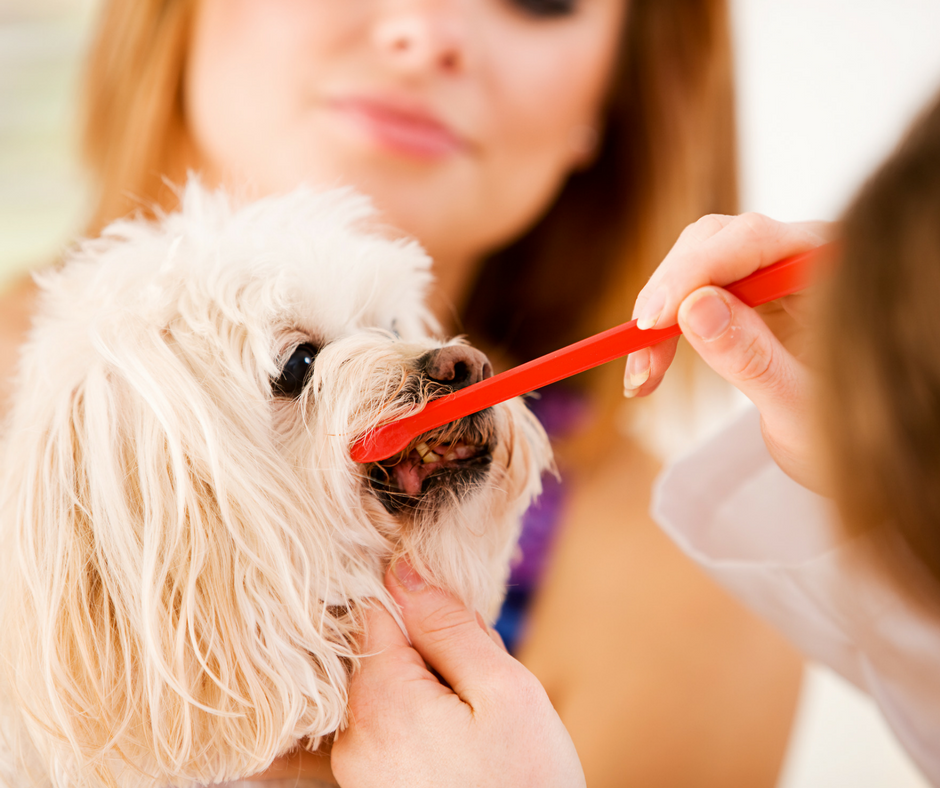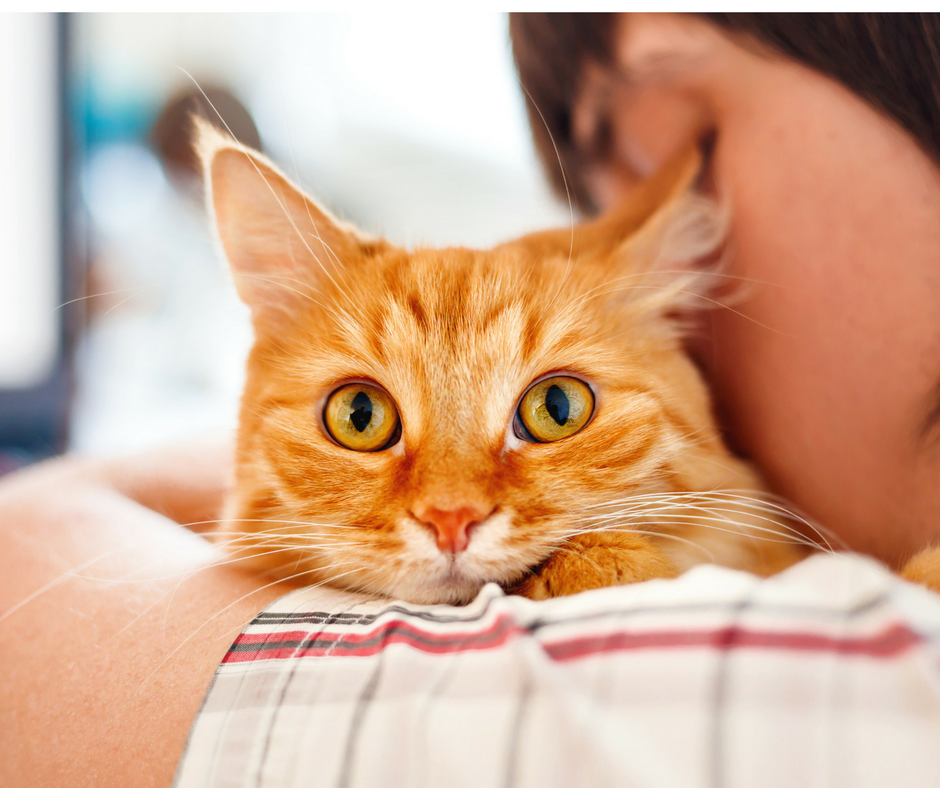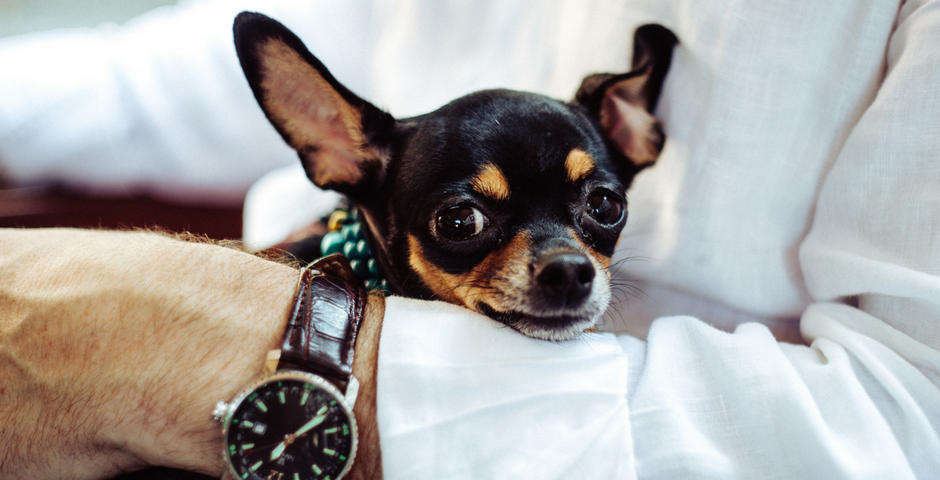
Preventing Pet Dental Health Problems
January 30, 2018
The Ins and Outs of Pet Health Insurance
March 7, 2018No one enjoys being stressed. The same goes for our pets. While there are lots of things we do to make our pet’s lives comfortable, there are occasions where we ask them to do stressful things. One of those things can be a trip to the veterinarian. It’s true that some pets truly enjoy their visits to see their doctor, while others are very resistant to walking through the front door. Perhaps you have a pet that is less than thrilled with his vet visit. Rest assured that we make every attempt to create a stress free veterinary visit and know that there are things you can do at home before a visit to help decrease the anxiety your pet may experience. Read on to learn more about how to help make vet visits as relaxing as possible.
Six Tips for a Stress Free Veterinary Visit
Tip #1: Bring out the pet carrier
A stress free veterinary visit can start before you even leave the house. Our pets are aware of small changes in the house. For example, if you bring out the cat carrier for an appointment does it send your cat hiding under the bed or behind the sofa? That’s because the kitty has learned that the carrier means a car ride and a subsequent trip to the veterinarian! So what can you do to keep your kitty calm and your furniture in place? A good thing to do is to practice bringing out the carrier several days before the vet visit and leave it open for your pet to explore. Giving your pet a few days to sniff and observe the carrier will teach him that just because the carrier is out, doesn’t necessarily mean a trip to the vet. If you can, place comfortable bedding in the carrier too. You may be surprised to find your pet taking naps in the carrier when it has been left out for a few days. If you use a carrier to transport your pet, the longer you leave the carrier out the better as it gives your pet more time to acclimate to the carrier being a part of his every day environment.
Tip #2: Schedule an Acclimation Visit
Perhaps you have a pet that’s too big to transport in a carrier? At Muller Veterinary Hospital, we welcome acclimation visits for pets who are a little wary of the doctor’s office. An acclimation visit is a visit to the office where the pet does not have an appointment with the veterinarian or the nursing staff. This allows the pet to walk into the office and leave without having an exam done or vaccines performed – a stress free veterinary visit for sure! Instead, we encourage positive reinforcement with treats and praise to build a pet’s confidence that not every trip to the vet will be a negative one.
Tip #3: Bring Along the Comforts of Home
To help achieve a stress free veterinary visit, there are things you can bring from home to calm your pet. You can bring your dog’s favorite toy or treats. You can also bring a towel, blanket, or article of clothing that smells like home. Scent is a very powerful sense and can be helpful in keeping your pet calm in both the waiting room and exam room. (You can also use these techniques if you bring your pet in a carrier as well.)
Tip #4: Consider the Driving Experience
Another thing to keep in mind is the drive from home to the vet’s office. While you may be used to the noise of the road, it’s less likely that your pet finds it as comforting. Consider your route and how you are driving. Some pets do experience motion sickness and this can play a part in how a pet feels about his experience at the veterinarian. Also, the car itself produces a lot of noise (tire noise, speed bumps, car horns) and creates a situation where a blanket or other comforting object may be helpful.
Tip #5: Experiment With Calming Products
For some pets, we recommend Feliway and DAP products (these are calming pheromones products that can help alleviate stress in our animals.) If these are products you are interested in trying, they are available at most pet stores. You can use them at home before your pet’s scheduled visit to calm him before even leaving the house.
Tip #6: Keep Your Pet Close to You
Another important thing to remember is that veterinary offices are not the best place for social visits. While some pets are normally friendly and outgoing, they become nervous and reserved at the veterinarian’s office. So when arriving with your pet at the waiting room, it’s important to remember to give your pet space as well as give other animals their space too. If you know that your pet prefers to avoid interaction with others at the veterinary office, feel free to ask the front desk staff to direct you to the best area to wait.
You can also request to have an exam room as soon as one becomes available to obtain that privacy. If you feel it necessary, you can embroider a phrase on your pet’s collar or leash with “I’m shy” to let others know that your pet is shy around others. It’s also important that if you use a long leash or a flexi-lead (the adjustable/retractable leash) to keep those leashes short while in the waiting room. This keeps your pet close to you and limits him from accidentally wandering into the space of a nervous pet.
This may sound like a lot to do to prepare for a visit. But once here, our doctors and team work to continue the positive experience. Here are just a few of the strategies we use to ensure a stress free veterinary visit:
- Positive reinforcement with treats (upon your approval) to show pets that the doctors and staff are friendly.
- Toys as a distraction from the fact that your pet is having medical treatments done.
- Provide individual space for each pet. We work to separate dogs and cats from sharing the same area of the hospital so that they feel safe and secure.
- If you bring items from home (like a toy or towel) the staff may ask to keep those items with your pet as a “security blanket” while we work with your pet.
- We also strive to make your pet’s visit an efficient one. We know that most pets would rather spend time with their owners than with us to have treatments or an exam, so we make every effort to be sure that pets spend a minimal amount of time away from their parents.
In some instances, your veterinarian may discuss alternatives or want to develop a plan to help alleviate stress during veterinary visits. Your vet may ask you to return for a separate visit in order to complete treatments. This is so your pet doesn’t associate a negative experience with the veterinarian or the veterinary office. If you feel veterinary visits are overly stressful for your pet, share your concerns with your veterinarian. Together, you can develop a plan and talk about options for your pet so he can receive the best health care without the stress.

